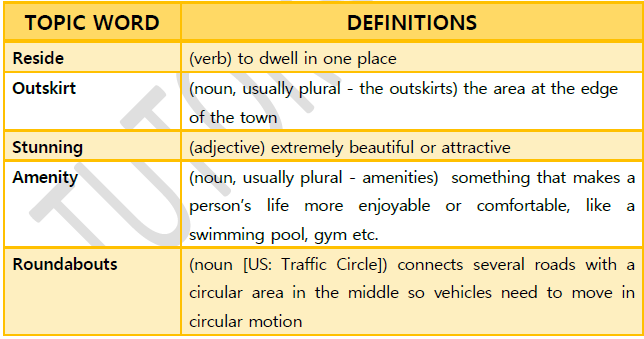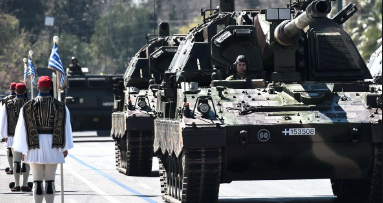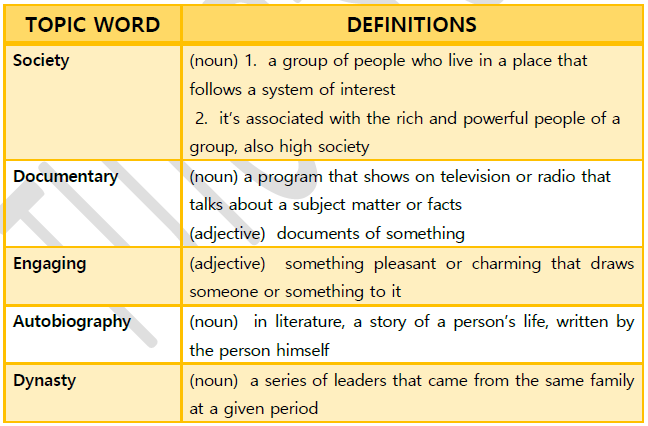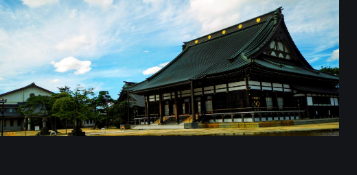IELTS スピーキング バンドスコア 7+対策法 Topic Word (テーマ別単語) 9
「HOLIDAY」

IELTS スピーキングの採点基準「 Lexical Resource (Vocabulary) 語彙の豊富さ」で
高い評価を得るために、Topic Word (テーマ別単語) の習得が必須です。
試験官は、質問のトピック(テーマ)にどれほど、受験者がTopic Word を
使って回答しているかをチェックしています。
例えば、環境問題について話をするとき、climate change, pollution levels などの単語が
すらすら出てくることを期待しています。
Topic Word テーマ別単語 「HOLIDAY」
以下、5つの単語は「HOLIDAY」に関連したTOPIC WORDです。
単語の定義を覚えましょう
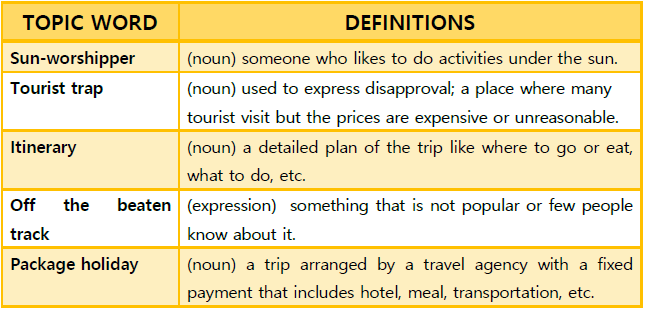
試験で使える!Topic Word 「HOLIDAY」
HOLIDAY 休日、休み、休業日

┃ 定義

┃ 例文

┃ Collocation 連語

TOUR 旅行、周遊、観光旅行

┃定義

┃ 例文

┃ Collocation 連語

DESTINATION 目的地、行き先、到着地

┃定義

┃ 例文

┃ Collocation 連語

その他「HOLIDAY」に関連したTOPIC WORD 7 Words
- Vacation (バケーション、休暇)
We are planning a vacation to Hawaii next summer
来年の夏にハワイへの休暇を計画しています。
- Relaxation (リラクゼーション、くつろぎ)
The beach is my favorite place for relaxation.
ビーチはくつろぎのための私のお気に入りの場所です。
- Adventure (アドベンチャー、冒険)
Our holiday included an exciting adventure in the mountains.
私たちの休日には山でのエキサイティングな冒険が含まれていました。
- Culture (カルチャー、文化)
I love exploring the culture of different countries during my holidays.
休日には異なる国々の文化を探索するのが好きです。
- Festival (フェスティバル、祭り)
We attended a famous music festival during our holiday.
休暇中に有名な音楽祭に参加しました。
- Sightseeing (サイトシーイング、観光)
Sightseeing is always a major part of our holiday itinerary.
観光はいつも私たちの休暇の旅程の大きな部分です。
- Recreation (レクリエーション、余暇活動)
The resort offers various recreational activities for holidaymakers.
そのリゾートは休暇中の人々のために様々な余暇活動を提供しています。
「Topic Word」をインストラクターと一緒にレッスン!















